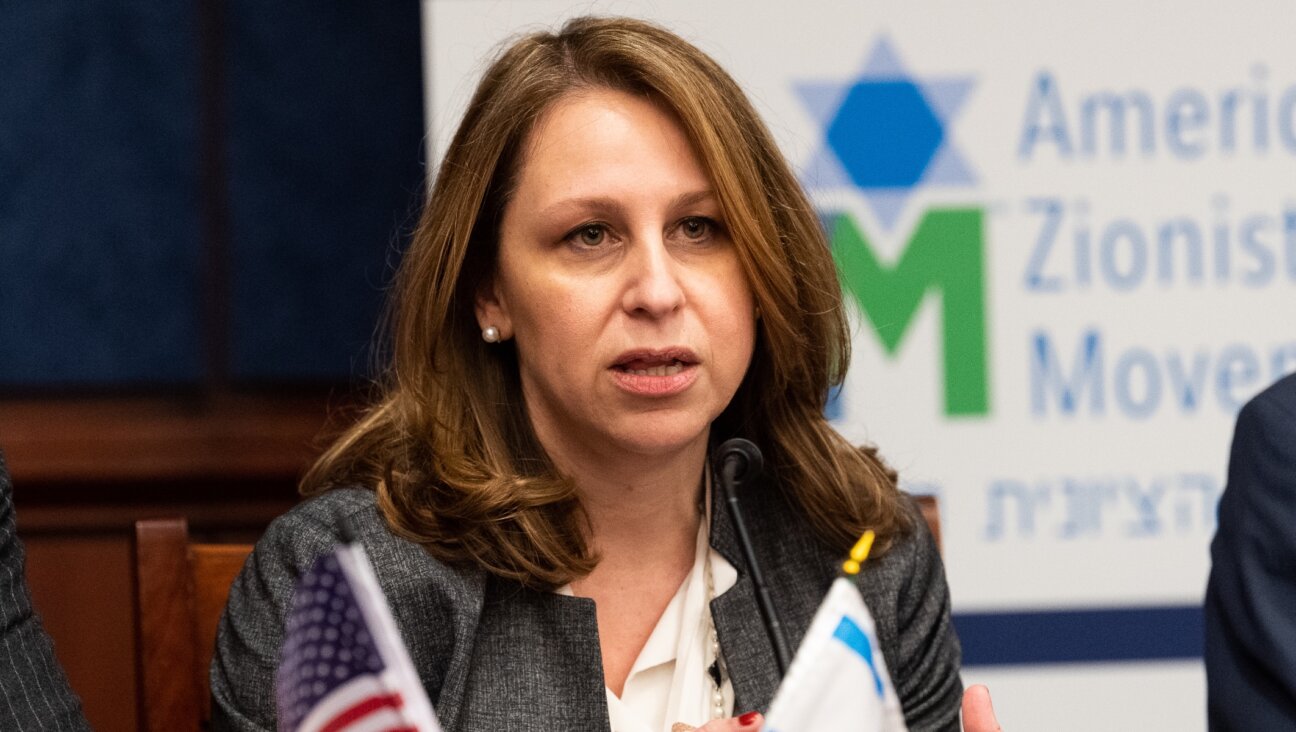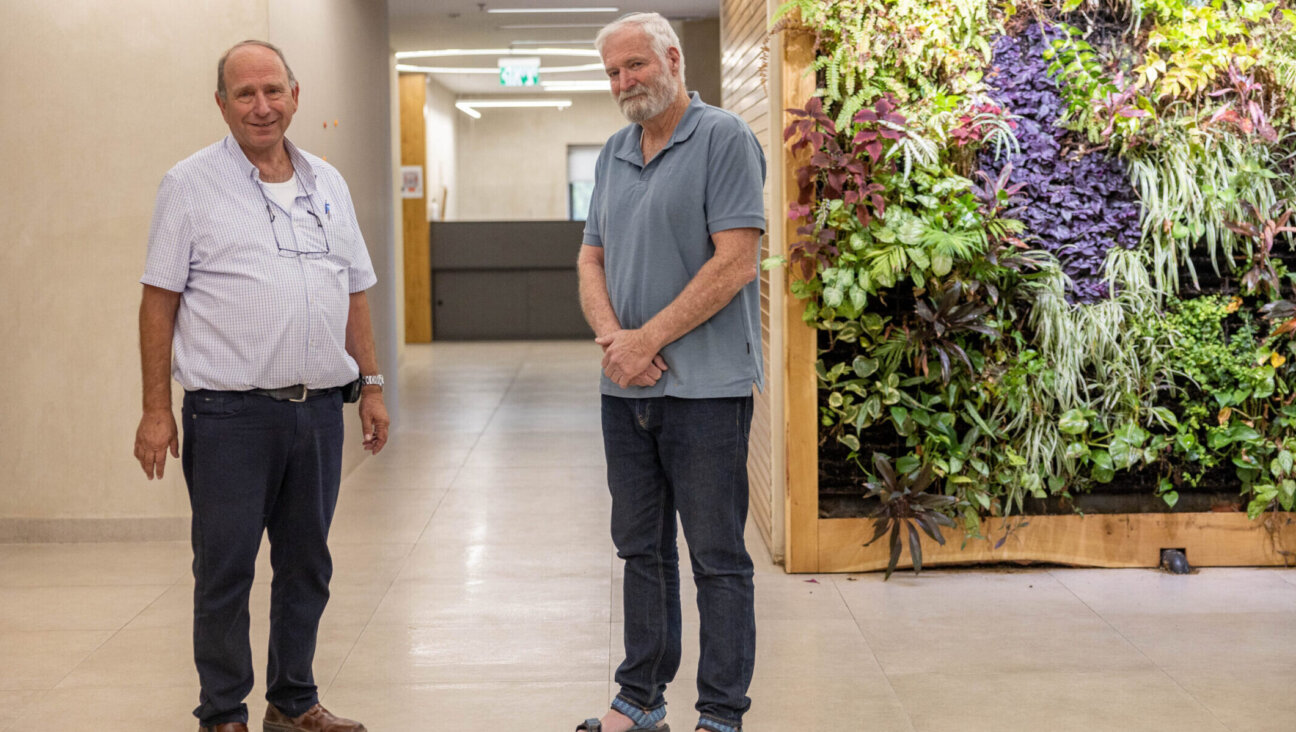Give Professionals Time To Dream
More often than not, young professionals in the non-profit world “do” what they “are.” In the Jewish communal world, this is constantly evident: The professionals who work in our communities also pray in our communities, socialize in our communities and volunteer in our communities.
They are the personification of the sense of community that we aspire to have felt by Jews throughout our community. But among this group of the Jewish community’s most dedicated, there is a serious problem that ought to cause alarm among the rest of us: Far too many young Jewish professionals are frustrated about their ability to make a difference.
Now that is a big statement, and I don’t want to over-generalize. But I hear it as a constant refrain from young professionals, regardless of the community in which they live or the Jewish organization at which they work.
And recent studies support what we know anecdotally: Job dissatisfaction and turnover continue to plague Jewish communal institutions at worrisome rates. One study referenced in a 2007 report by Brandeis University researchers Amy Sales and Nicole Samuel found that barely half of Jewish community professionals cited Jewish community work as the reason they stayed in their current position. Another study found that some 56% of Jewish professionals had thought about leaving their jobs in the past two years.
In light of the anecdotes and the date, I’ve often wondered aloud in conversations with young Jewish professionals whether it is more interesting to be a professional in the Jewish community, rather than what I am — an engaged volunteer. And nearly as often, the response I’ve gotten, often with a sense of resignation, is that volunteers have a much greater ability to effect change than the professionals do.
Think about that for a moment. These individuals have dedicated themselves to a profession that is about effecting change in the Jewish community. Whether it is education, social services, religious, arts and culture or any other of the diverse community services that non-profits perform, these professionals work in organizations that help develop our community.
And what I’m hearing from them, over and over again, is that they believe volunteers have a much greater ability to make a difference than the professionals do.
As the saying goes, Houston, we have a problem. And so does Atlanta, Chicago, Denver, Los Angeles, New York, Philadelphia and Washington, too. We all do.
When our young professionals aren’t inspired by their own ability to effect change, it is difficult to imagine them inspiring non-professionals to effect change — and make no mistake about it, we need lots of inspiration, imagination and change.
We cannot afford to have our young professionals — indeed, all of our professionals — lose confidence in their ability to make a difference.
We need to build that confidence institutionally, interpersonally and communally. When it comes to Jewish community professionals, we all believe in the importance of them — but perhaps more importantly, we need them to believe in the importance of themselves as agents of change.
How to go about building that confidence? Try searching where much of the world searches for everything else: Google.
Google — the company — offers it engineers the opportunity to spend 20% of their time on projects that they are truly passionate about and that scratch their creative or inquisitive itch. So long as the engineers spend 80% of the time on their designated efforts, they can use the 20% time on other endeavors.
And what has been the result of these efforts? Products like AdSense and Google Suggest — products that have had a huge impact on Google and on the business of Internet search in general. All because engineers are given their freedom to pursue those efforts that personally inspire them and which they think will make a difference.
What if our Jewish communal organizations started giving its professionals 20% time? What if we offered them the opportunity to pursue those efforts within their organization that they think might have a transformative impact but, in the meantime, don’t require 80% of their efforts? What kind of new initiatives and approaches would be developed that would strengthen their respective organizations and our community as a whole?
Now I can already hear some of the critical responses to this idea. Sure it all sounds well and good, but how are we to be certain the professionals will use the time wisely? What about getting their other responsibilities done in time? How will this impact outcomes, performance metrics and all the other modern methods we use for attempting to measure organizational success?
There’s a rather simple answer: Trust our best and brightest.
We trust our professionals to make good judgment calls with our students, our clients, our partners and our donors. Why shouldn’t we trust them in this instance? Their instincts are strong and they are committed to the cause — isn’t that justification enough to trust them to use their 20%-time wisely?
The freedom to create will create a renewed sense of ability to transform in each professional. And with time comes ability, with ability comes results, and with results come change — the type of change, of making a difference, that inspired these professionals to choose their careers in the first place.
By giving our professionals their 20%-time, our communities stand the chance of reaping 100% of the benefit. Perhaps more importantly, we would be enabling our Jewish community professionals to regain something that so many of them feel they have lost: the ability to make a difference.
Seth Cohen, an attorney in Atlanta, is an alumnus of the Wexner Heritage Program.
A message from our CEO & publisher Rachel Fishman Feddersen

I hope you appreciated this article. Before you go, I’d like to ask you to please support the Forward’s award-winning, nonprofit journalism during this critical time.
We’ve set a goal to raise $260,000 by December 31. That’s an ambitious goal, but one that will give us the resources we need to invest in the high quality news, opinion, analysis and cultural coverage that isn’t available anywhere else.
If you feel inspired to make an impact, now is the time to give something back. Join us as a member at your most generous level.
— Rachel Fishman Feddersen, Publisher and CEO























